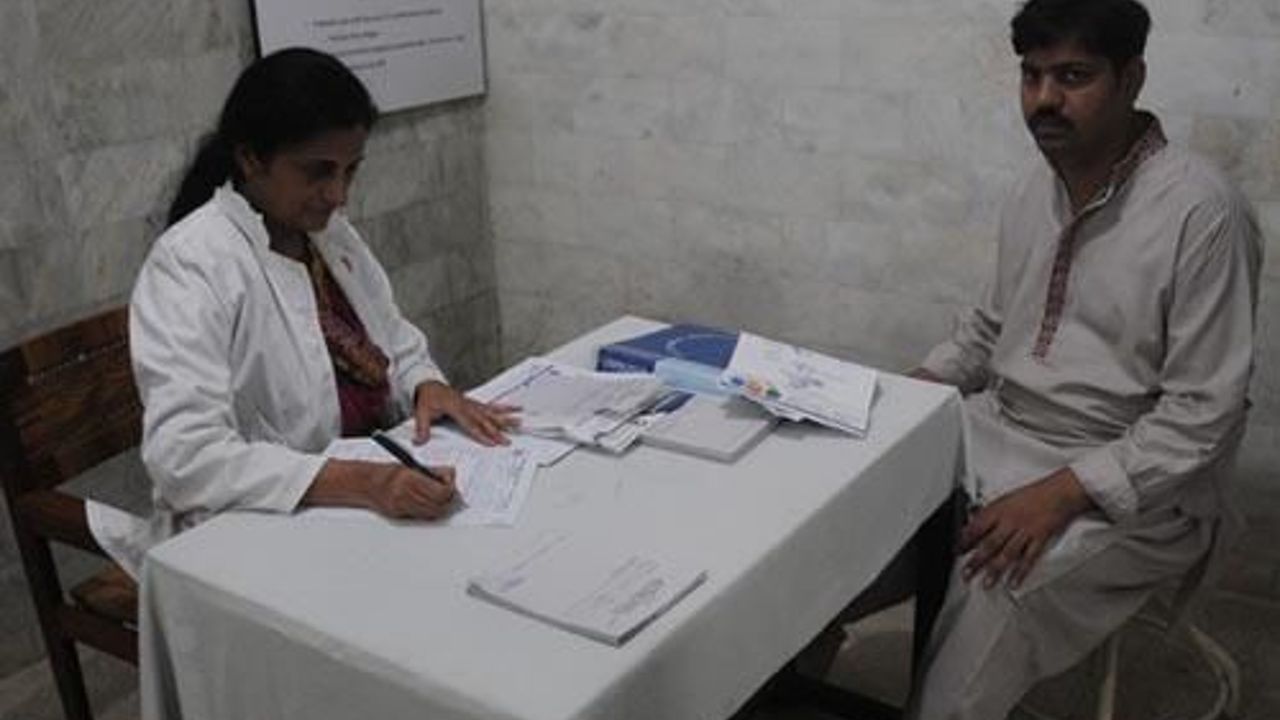Pakistan's doctors forced away by sectarian killings
Health |
Targeted killings of Shia and Sunni doctors has caused a brain drain from Pakistan's hospitals

Font Size:
Pakistan is losing its doctors. Targeted killings of doctors caught between sectarian conflict has caused a brain drain that has forced thousands of much-needed trained health professionals abroad in recent years.
Greater security and higher salaries in Western countries and wealthy Arab states like Saudi Arabia are luring away up 1,500 doctors every year, according the Higher Education Commission.
"Pakistan is already suffering from a shortage of trained physicians and surgeons, and the ongoing exodus of doctors, just to save their lives, has further aggravated the problem," says Dr. Mirza Ali Azhar, secretary-general of the Pakistan Medical Association.
According to the medical association, some 70 doctors were killed across Pakistan, mainly on sectarian grounds, from 2010 to 2014. All but 12 of those doctors were killed in the southern port city of Karachi, the country's cosmopolitan commercial capital and a hotbed for communal tension.
The last month has seen four doctors -- two Shia, two Sunni -- targeted in Karachi. According to police, some have their sect "mistakenly" identified through their name, as was the case for Dr. Ali Akbar, a Sunni, who was killed in a retaliatory attack on January 10 following the killing of a Sunni doctor.
In protest against the killing of their colleagues, Pakistani doctors have announced a countrywide strike on February 2.
Pakistan only has one doctor per 10,000 citizens; a long way short of the World Health Organization's recommended ration of a doctor per every 600 people.
"We have knocked on every door -- the government, police and other law-enforcing agencies -- to save us from targeted killings but to no avail," says a frustrated Dr. Mirza. "We are not Sunnis or Shiites. We are doctors. We have taken an oath to treat people irrespective of their religion, sect or race.
"Pakistan spends millions of Rupees to produce a doctor, and millions more to make him a specialist but at the end of the day, he is serving people of other country, just to save his life."
Dr. Arif Ahmed is one of those who left Karachi, not to go abroad but to work in a small town in Pakistans northeast, where he feels he can work without living in constant fear.
"I feared that I would be killed someday if I had stayed there. Every week a doctor is killed, injured or abducted. How could I stay mentally stable and work in these circumstances?" says Dr. Arif, who nevertheless has received numerous threatening calls in recent weeks.
"I never asked my patients whether they are Sunni or Shia but I and my colleagues are being targeted just because we happen to be Sunni or Shia," he says. "I know I will be earning much less than I would have in Karachi but at least I and my family are safe here."
Anadolu Agency
Greater security and higher salaries in Western countries and wealthy Arab states like Saudi Arabia are luring away up 1,500 doctors every year, according the Higher Education Commission.
"Pakistan is already suffering from a shortage of trained physicians and surgeons, and the ongoing exodus of doctors, just to save their lives, has further aggravated the problem," says Dr. Mirza Ali Azhar, secretary-general of the Pakistan Medical Association.
According to the medical association, some 70 doctors were killed across Pakistan, mainly on sectarian grounds, from 2010 to 2014. All but 12 of those doctors were killed in the southern port city of Karachi, the country's cosmopolitan commercial capital and a hotbed for communal tension.
The last month has seen four doctors -- two Shia, two Sunni -- targeted in Karachi. According to police, some have their sect "mistakenly" identified through their name, as was the case for Dr. Ali Akbar, a Sunni, who was killed in a retaliatory attack on January 10 following the killing of a Sunni doctor.
In protest against the killing of their colleagues, Pakistani doctors have announced a countrywide strike on February 2.
Pakistan only has one doctor per 10,000 citizens; a long way short of the World Health Organization's recommended ration of a doctor per every 600 people.
"We have knocked on every door -- the government, police and other law-enforcing agencies -- to save us from targeted killings but to no avail," says a frustrated Dr. Mirza. "We are not Sunnis or Shiites. We are doctors. We have taken an oath to treat people irrespective of their religion, sect or race.
"Pakistan spends millions of Rupees to produce a doctor, and millions more to make him a specialist but at the end of the day, he is serving people of other country, just to save his life."
Dr. Arif Ahmed is one of those who left Karachi, not to go abroad but to work in a small town in Pakistans northeast, where he feels he can work without living in constant fear.
"I feared that I would be killed someday if I had stayed there. Every week a doctor is killed, injured or abducted. How could I stay mentally stable and work in these circumstances?" says Dr. Arif, who nevertheless has received numerous threatening calls in recent weeks.
"I never asked my patients whether they are Sunni or Shia but I and my colleagues are being targeted just because we happen to be Sunni or Shia," he says. "I know I will be earning much less than I would have in Karachi but at least I and my family are safe here."
Anadolu Agency
Video News

WORLD
26 Mart 2024 - 11:18
Photo News






